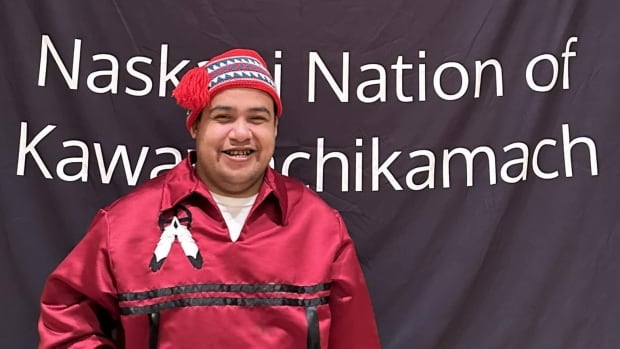
Gilles-Francis Pone Shecanapish may not be able to talk about his experience being flown 500 kilometres to a psych ward, but his sister says the experience has left a mark on the 40-year-old who has severe intellectual disabilities and is non-verbal.
“This was the first time he was separated from my parents,” said Martha-Mary Shecanapish of Kawawachikamach, a Naskapi community located in northern Quebec near Labrador.
She says her brother, known in the community as Pone, now won’t let his parents out of his sight after being forced out of his community for several weeks.
Charged with assault following an incident in 2021, Shecanapish says a judge decided in late October that Pone needed an evaluation at the Sept-Îles, Que., hospital, partly to determine if he was a risk.
That’s when she mobilized the community — launching a petition that garnered nearly 500 signatures and a Facebook page amassing hundreds of followers — to show their support in bringing him home.
Following a month away, including an evaluation in hospital and a tribunal hearing, she says Pone returned home in late November.
Shecanapish says there needs to be better resources for adults living with disabilities to prevent removal from their homes, especially for those in Indigenous communities.
‘My parents were scared’
Adopted by the Shecanapish family when he was a child, Pone is able to speak a few words in Naskapi but has the mental capacity of a three-year-old, says Shecanapish.
In 2021, Pone was triggered in the local store and grabbed onto someone — resulting in a complaint being filed with the police, she says.
“The complaint was that he was a danger to the community with these outbursts,” said Shecanapish.
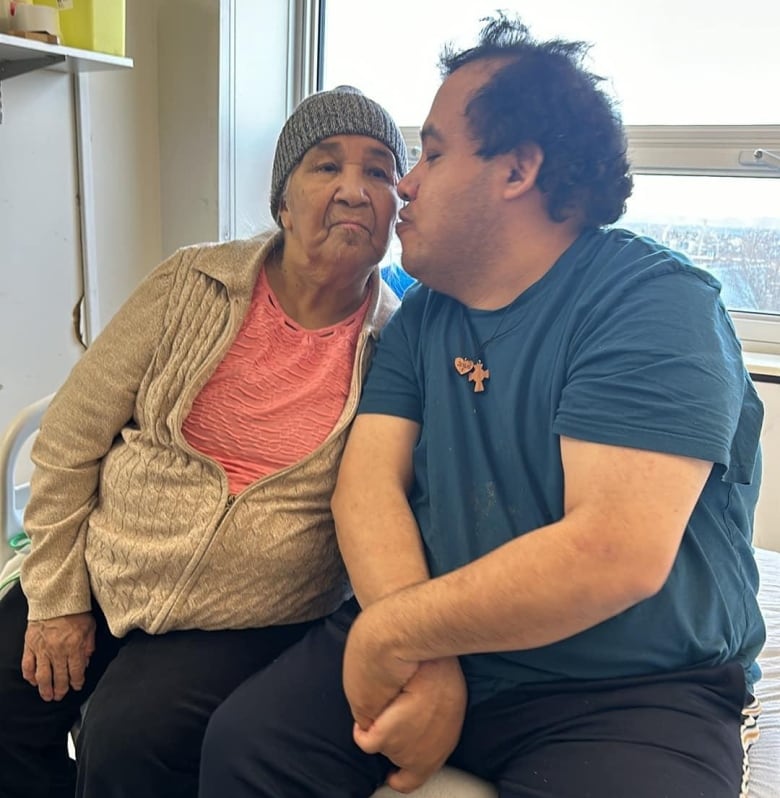
“My parents were scared.… It was so traumatic to us.”
Marie-Andrée Caron, Pone’s lawyer, says the provincial commission responsible for mental health conditions, La Commission d’examen des troubles mentaux, will determine if Pone is unfit to stand trial due to his mental state.
In an emailed statement to CBC News, Caron said in cases where the accused is considered unfit, the commission determines if they represent a significant risk to public safety.
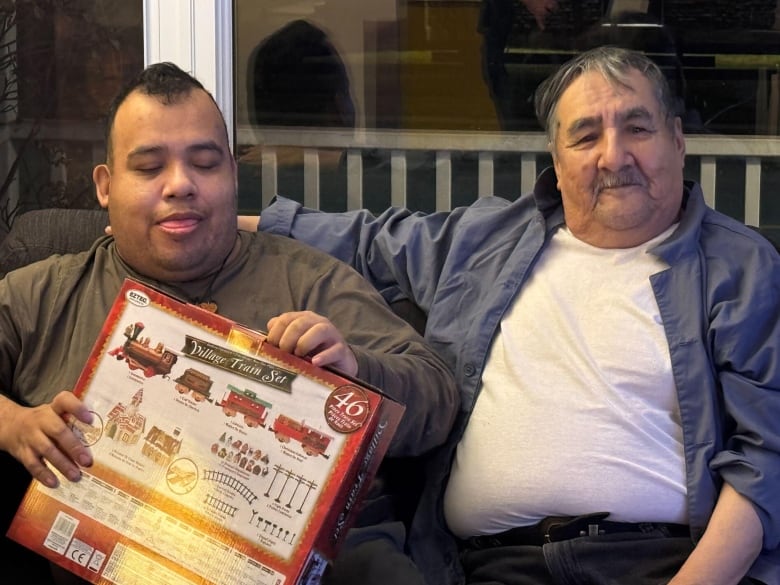
“[If] the accused does not represent a significant risk to public safety, the commission must release him or her unconditionally,” read the statement.
She says the commission must also decide whether there are measures that need to be taken to allow for the accused’s social reintegration.
This could include conditional release or detention in a hospital either with or without unaccompanied outings, said Caron.
Chiefs write letters of support
While Pone was away, messages poured in with individuals sharing stories and photos of him clearing snow in town or picking up garbage.
Letters from the chiefs of Kawawachikamach and neighbouring Innu communities solidified the family’s argument that he was a valuable member of the town, she says.
“They didn’t think he was a danger to the community and people,” said Shecanapish. “I didn’t think we could get that much support.”
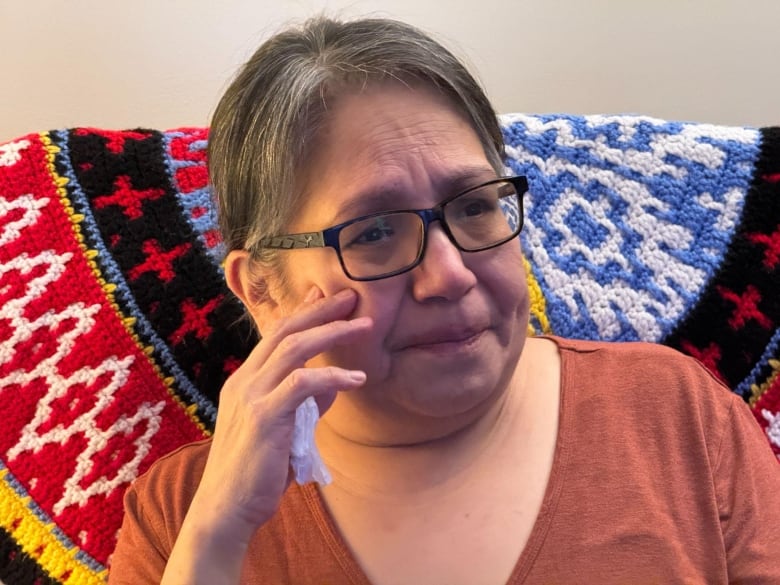
In a written declaration of support, Kawawachikamach Chief Louise Nattawappio said it is with “great disbelief” that the nation was made aware of Pone’s “forced removal from our community.”
She said this was done without consultation.
“His absence from the community has caused great shock amongst council members as he is a well known and appreciated member of our community,” read the letter, shared with CBC News by the Shecanapish family.
In a joint letter of support, several chiefs of the Innu Nation said Pone’s placement in Sept-Îles constitutes a “serious infringement of his individual and collective rights.”
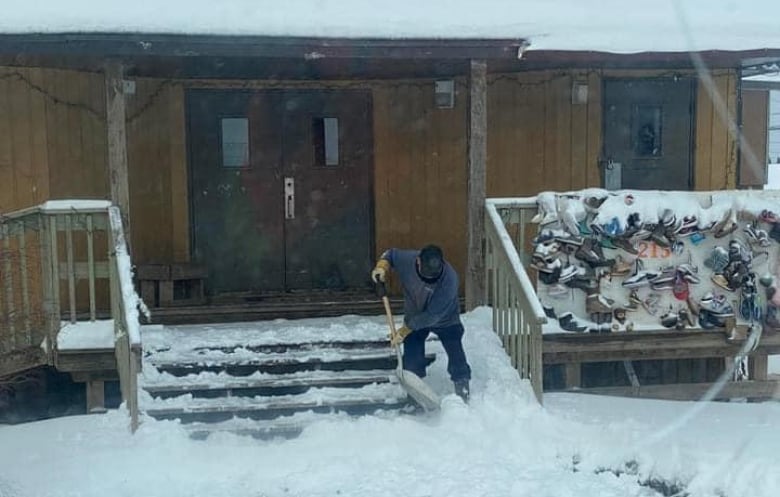
“Indigenous peoples enjoy the right to self-determination, recognized by the United Nations Declaration on the Rights of Indigenous Peoples. This right includes active participation in all decisions concerning their well-being, health and development,” read the statement.
“His placement outside his community exposes Mr. Shecanapish to significant risks of cultural and linguistic isolation.”
Transfer ‘doesn’t make sense’: Advocate
Martha-Mary says more needs to be done to “prevent removal” of people with intellectual disabilities like her brother.
After Pone aged out of the school system, she says her parents became his primary and sole caregivers, since there’s an absence of support systems for adults with disabilities.
“You could see they were very worried and scared,” she said, taking a deep breath. “Of course, we’re concerned that they’ll try to take him out again.”
Disability rights activist Steven Laperrière says the first considerations should be about ensuring the individual’s security, the security of people around them and that the person is properly medicated before looking at removing someone from the community.
“Especially in regions, it’s very variable as to how they handle that,” said Laperrière, head of the Regroupement des activistes pour l’inclusion au Québec (RAPLIQ), which supports people with disabilities.
“It doesn’t make sense that someone with a mental illness is separated from their family.”
If a patient is surrounded by family members who are capable of providing care, he says it’s preferable for them to stay with the adult.
Staffing shortage, underfunding
The office of Ian Lafrenière, the provincial minister responsible for relations with First Nations and Inuit, says he is aware of the situation.
In an email to Radio-Canada, Stéphan Roy, general manager of the local clinic, says it wants to improve its services.
CLSC Naskapi offers basic support to patients with intellectual disabilities, while specialized services are provided by the Sept-Îles hospital, he said. Roy also pointed to Quebec’s underfunding of several programs and a shortage of staff.
Guillaume Dumont, the head of psychiatry at the local health authority, says it’s preferable for a patient to receive care in their community, but that “sometimes dispensaries don’t have the capacity to manage a patient in crisis and request a transfer.”
Health Ministry spokesperson Marie-Christine Patry said there is a system of shared resources for this region but acknowledged that it is very challenging to access psychiatric assessment in remote areas.
“Low volume and difficulty in recruiting skilled professionals are major obstacles to serving this population with local services,” read the email.



